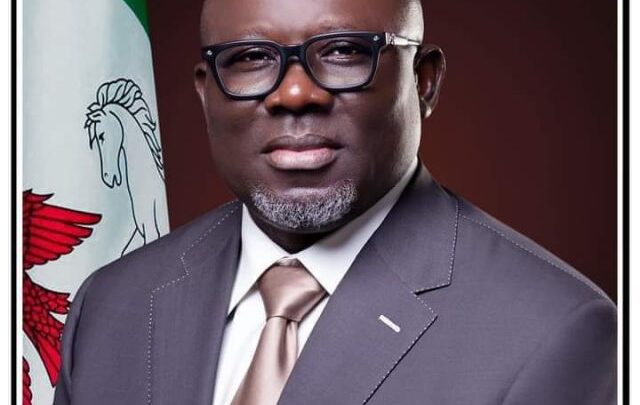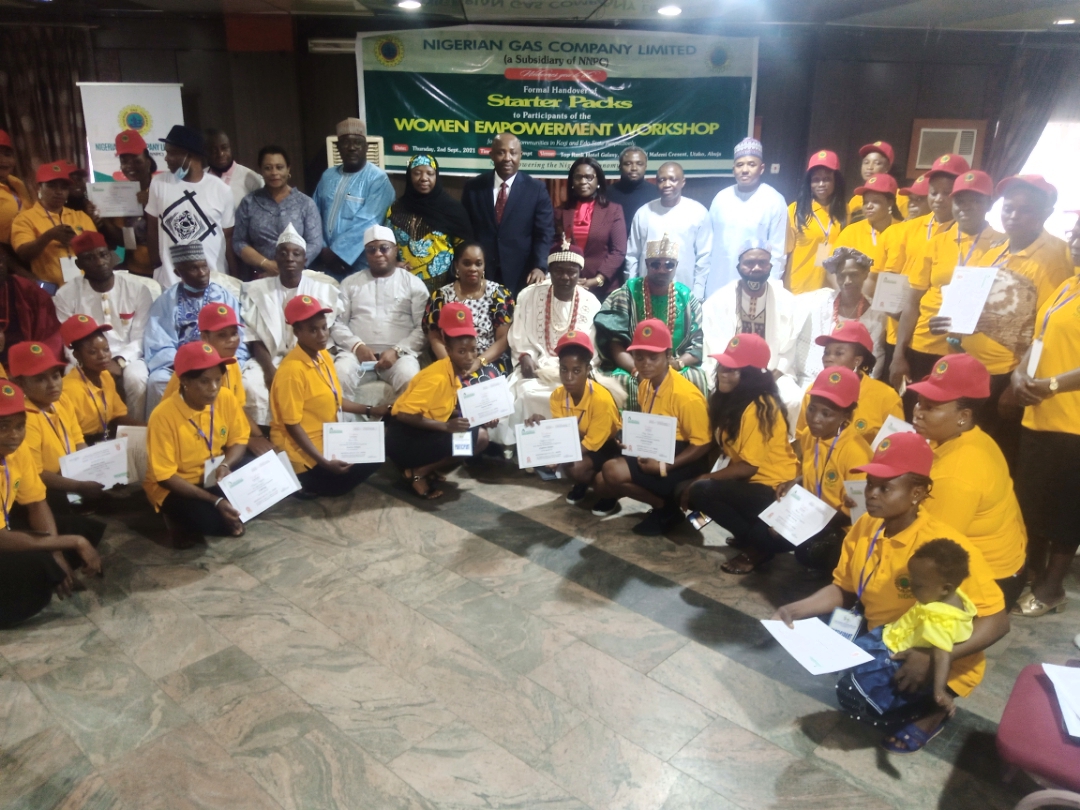News
DESOPADEC: Transforming Oil Communities Under Oborevwori’s Leadership

By Elohor Foghola
As Governor Sheriff Oborevwori marks two years in office, the Delta State Oil Producing Areas Development Commission (DESOPADEC) has emerged as a cornerstone of his administration’s commitment to inclusive growth through the MORE Agenda.
Under the leadership of Chairman, Chief Barr. John Nani, and Managing Director, Chief Festus Ochonogor, DESOPADEC has executed a broad range of infrastructure and human capital development projects, significantly impacting the state’s oil-producing communities.
Former UN Secretary-General Ban Ki-moon once said, “Sustainable development is the pathway to the future we want for all.” This philosophy encapsulates DESOPADEC’s approach—delivering progress that integrates infrastructure, empowerment, sustainability, and good governance.
Widespread Impact Across Ethnic Mandates
Since 2023, DESOPADEC has made notable progress across its six mandate ethnic nationalities: Urhobo, Ijaw, Isoko, Ndokwa, Itsekiri, and Ika. One of the most measurable areas of success is infrastructure development. To date, more than 60 road and jetty projects have been initiated, with about 80% completed and the rest at various stages of execution.
Key road projects include Oyibo Road, Eriakhewhe Street, and Asupa Road in Jesse; Golf Road in Oghareki; Ezewu Road and Onosode Road in Ughelli; and Etapobunor Road in Sapele. In Amukpe, Capricorn Road was developed, while Uvwie saw the construction of Oku-Isoko Road and Pastor Okpobor Road in Iyede.
In Warri South and Warri South West, critical roads such as Ubeji Gas Road, Gas Pipeline Road to Agbolaya Close, Madam Dora Road in Ifiekporo, and Aja-Etan and Orugbo Roads were rehabilitated. Additionally, new jetties vital for riverine transport were constructed in Benemogbene, Sokebolo, and Fenegbene.
Healthcare: Bringing Services Closer
Health infrastructure development is another pillar of DESOPADEC’s work. Health centers were built in Egbokodo and Ugbori (Warri South) and Ode-Itsekiri and Orugbo (Warri South West). A new maternity ward was added to Koko General Hospital in Warri North, while facilities in Egberide (Ughelli South) and Utagbo Uno were upgraded or expanded.
Other significant health projects include centers in Obuguru, Youbebe, and Tamigbe (Burutu); renovations in Kpakiama (Bomadi); and a newly constructed, fenced health center in Ikepide-Irri (Isoko South). These investments have improved access to medical care in underserved areas.
Housing, Education, and Utilities
Housing development is another priority, with over 50 residential bungalows—ranging from one- to three-bedroom units—built in Oboghoro (Warri North), Ajansan (Warri South West), and various riverine and inland communities such as Ogheye-Egboroke, Kokodiagbene, and Tuomo.
In education, DESOPADEC has completed or rehabilitated more than 55 schools. Notable examples include the ultra-modern Iwere College and Beach Secondary School in Koko, and the Azama Zion Primary School, which boasts six classroom blocks. In addition, corps members’ lodges, ICT halls, and libraries have been built in communities such as Jones Creek, New Diebiri, and Oporoza.
Further educational interventions include work at St. Michael’s College (Oleh), Ogbe-Udu Secondary School, and schools in Ukwani, Edjekota Ogor, and Okpare Olomu—boosting access to quality education and supporting academic excellence.
To improve utility access, DESOPADEC has installed solar-powered streetlights and water systems across numerous communities. Power transformers were also distributed to ensure stable electricity supply in previously underserved areas.
Addressing Environmental and Security Challenges
Given Delta State’s low-lying terrain, flooding poses a persistent threat. In 2024 alone, DESOPADEC carried out desilting of drains and canal clearing in Jesse, Agbarho, Sapele, Ughelli, Agbor, Ndokwa, Umutu, and Warri South. Canalization projects were executed in Tisun and Inorin creeks, while protective shore walls were built in Ajuju, Ikeremor, and Oloukpagbene.
Security infrastructure was also enhanced. DESOPADEC constructed police quarters in Etua-Etiti and a divisional headquarters in Aboh. In Osubi, a modern police station and residential quarters were completed to support law enforcement and enhance community safety.
Investing in People
Human capital development has been a central focus. In 2023, the DESOPADEC Skill Academy trained 195 youths, each receiving N200,000 and starter kits. In 2024, the program expanded to support over 200 participants with both equipment and a N500,000 grant, helping cushion the effects of inflation and encouraging entrepreneurship.
DESOPADEC has also deepened community engagement by collaborating with traditional rulers and youth leaders to maintain peace and ensure smooth project execution. These efforts have helped to resolve disputes and foster a more stable environment for oil operations and development.
Strengthening the Institution
Internally, DESOPADEC has undergone reforms to align with the Delta State Civil Service. Staff restructuring, promotions, and administrative training—covering areas such as memo writing and documentation—have improved efficiency.
Governor Oborevwori also made history by being the first Delta governor to implement the national minimum wage for DESOPADEC staff, underscoring his commitment to staff welfare and institutional integrity.
Speaking on these achievements, Chief Ochonogor praised Governor Oborevwori’s active involvement in project monitoring. “The Governor has not just funded projects; he has shaped a culture of accountability and discipline that drives excellence,” he said.
He added that while infrastructure is important, true progress lies in community ownership and civic participation. “The MORE Agenda is not just a slogan—it’s a collective call to action,” Ochonogor emphasized.
A Vision Taking Root
Two years on, the transformational progress of DESOPADEC under Governor Oborevwori is undeniable. From jetties in the creeks to health centers in remote villages and ICT halls in classrooms, the Commission is driving meaningful change across Delta’s oil-producing areas.
As these interventions reach more communities, a new wave of optimism is spreading. Stakeholders and residents alike are regaining confidence in the power of government to deliver deliberate, inclusive, and lasting development.
As Governor Sheriff Oborevwori marks two years in office, the Delta State Oil Producing Areas Development Commission (DESOPADEC) has emerged as a cornerstone of his administration’s commitment to inclusive growth through the MORE Agenda.
Under the leadership of Chairman, Chief Barr. John Nani, and Managing Director, Chief Festus Ochonogor, DESOPADEC has executed a broad range of infrastructure and human capital development projects, significantly impacting the state’s oil-producing communities.
Former UN Secretary-General Ban Ki-moon once said, “Sustainable development is the pathway to the future we want for all.” This philosophy encapsulates DESOPADEC’s approach—delivering progress that integrates infrastructure, empowerment, sustainability, and good governance.
Widespread Impact Across Ethnic Mandates
Since 2023, DESOPADEC has made notable progress across its six mandate ethnic nationalities: Urhobo, Ijaw, Isoko, Ndokwa, Itsekiri, and Ika. One of the most measurable areas of success is infrastructure development. To date, more than 60 road and jetty projects have been initiated, with about 80% completed and the rest at various stages of execution.
Key road projects include Oyibo Road, Eriakhewhe Street, and Asupa Road in Jesse; Golf Road in Oghareki; Ezewu Road and Onosode Road in Ughelli; and Etapobunor Road in Sapele. In Amukpe, Capricorn Road was developed, while Uvwie saw the construction of Oku-Isoko Road and Pastor Okpobor Road in Iyede.
In Warri South and Warri South West, critical roads such as Ubeji Gas Road, Gas Pipeline Road to Agbolaya Close, Madam Dora Road in Ifiekporo, and Aja-Etan and Orugbo Roads were rehabilitated. Additionally, new jetties vital for riverine transport were constructed in Benemogbene, Sokebolo, and Fenegbene.
Healthcare: Bringing Services Closer
Health infrastructure development is another pillar of DESOPADEC’s work. Health centers were built in Egbokodo and Ugbori (Warri South) and Ode-Itsekiri and Orugbo (Warri South West). A new maternity ward was added to Koko General Hospital in Warri North, while facilities in Egberide (Ughelli South) and Utagbo Uno were upgraded or expanded.
Other significant health projects include centers in Obuguru, Youbebe, and Tamigbe (Burutu); renovations in Kpakiama (Bomadi); and a newly constructed, fenced health center in Ikepide-Irri (Isoko South). These investments have improved access to medical care in underserved areas.
Housing, Education, and Utilities
Housing development is another priority, with over 50 residential bungalows—ranging from one- to three-bedroom units—built in Oboghoro (Warri North), Ajansan (Warri South West), and various riverine and inland communities such as Ogheye-Egboroke, Kokodiagbene, and Tuomo.
In education, DESOPADEC has completed or rehabilitated more than 55 schools. Notable examples include the ultra-modern Iwere College and Beach Secondary School in Koko, and the Azama Zion Primary School, which boasts six classroom blocks. In addition, corps members’ lodges, ICT halls, and libraries have been built in communities such as Jones Creek, New Diebiri, and Oporoza.
Further educational interventions include work at St. Michael’s College (Oleh), Ogbe-Udu Secondary School, and schools in Ukwani, Edjekota Ogor, and Okpare Olomu—boosting access to quality education and supporting academic excellence.
To improve utility access, DESOPADEC has installed solar-powered streetlights and water systems across numerous communities. Power transformers were also distributed to ensure stable electricity supply in previously underserved areas.
Addressing Environmental and Security Challenges
Given Delta State’s low-lying terrain, flooding poses a persistent threat. In 2024 alone, DESOPADEC carried out desilting of drains and canal clearing in Jesse, Agbarho, Sapele, Ughelli, Agbor, Ndokwa, Umutu, and Warri South. Canalization projects were executed in Tisun and Inorin creeks, while protective shore walls were built in Ajuju, Ikeremor, and Oloukpagbene.
Security infrastructure was also enhanced. DESOPADEC constructed police quarters in Etua-Etiti and a divisional headquarters in Aboh. In Osubi, a modern police station and residential quarters were completed to support law enforcement and enhance community safety.
Investing in People
Human capital development has been a central focus. In 2023, the DESOPADEC Skill Academy trained 195 youths, each receiving N200,000 and starter kits. In 2024, the program expanded to support over 200 participants with both equipment and a N500,000 grant, helping cushion the effects of inflation and encouraging entrepreneurship.
DESOPADEC has also deepened community engagement by collaborating with traditional rulers and youth leaders to maintain peace and ensure smooth project execution. These efforts have helped to resolve disputes and foster a more stable environment for oil operations and development.
Strengthening the Institution
Internally, DESOPADEC has undergone reforms to align with the Delta State Civil Service. Staff restructuring, promotions, and administrative training—covering areas such as memo writing and documentation—have improved efficiency.
Governor Oborevwori also made history by being the first Delta governor to implement the national minimum wage for DESOPADEC staff, underscoring his commitment to staff welfare and institutional integrity.
Speaking on these achievements, Chief Ochonogor praised Governor Oborevwori’s active involvement in project monitoring. “The Governor has not just funded projects; he has shaped a culture of accountability and discipline that drives excellence,” he said.
He added that while infrastructure is important, true progress lies in community ownership and civic participation. “The MORE Agenda is not just a slogan—it’s a collective call to action,” Ochonogor emphasized.
A Vision Taking Root
Two years on, the transformational progress of DESOPADEC under Governor Oborevwori is undeniable. From jetties in the creeks to health centers in remote villages and ICT halls in classrooms, the Commission is driving meaningful change across Delta’s oil-producing areas.
As these interventions reach more communities, a new wave of optimism is spreading. Stakeholders and residents alike are regaining confidence in the power of government to deliver deliberate, inclusive, and lasting development.



